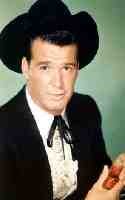Have you been reading about the financial crisis caused by the home mortgage debacle? Here is what Paul Krugman has to say about it. Thinking about it has raised some questions in my mind.
Anyone over the age of 35 or so knows very well the basic rules for making safe home mortgages – ones that will likely not go into foreclosure. They were the rules in place when we were young. A sound and safe home mortgage is based on an accurate appraisal of the value of the property, does not exceed 80% of the property’s value, and is made to someone for whom the mortgage payments are no more than one third of their take-home income.
So, if you are over the age of 35, have alarm bells been going off in your head over the last 15 years or so about what has been happening with home loans? If you have investments have you been avoiding ones that involve pools of residential mortgages? Have you said no to second and third mortgages and variable rate mortgages? If not, why not? Did you think that the need for the old rules were figments of our parent’s imaginations? Or did you think that something had changed so that the old rules did not apply any more? If so, what did you think had changed?
If you considered yourself a conservative at any time during the last 15 years did being a conservative make you more or less likely to think that throwing out the rules for how to write home mortgages was a problem? What exactly have conservatives been conserving?



3 comments:
When you can't identify or quantify what's on the balance sheet, is it really there?
The mortgage industry just fed into the flash flood of collateralized debt which is now nothing but a S--t Creek, and the only thing that's left to be identified and quantified are the homes at the end of the chain.
So if you were one of those that bought into the idea that home prices don't fall, interest rates will always stay low, and banks will always have money to loan, you're hurting.
The alarm bells definitely have been going off in my mind, which helped me make some very good decisions two years ago. I don't see what being a "conservative" (in the political sense) has anything to do with it.
Thanks for your comments, Huck.
What does being a "conservative" (in the political sense) have to do with it? Nothing in terms of decisions one makes in one's own financial affairs. But the people calling themselves "Conservative" (in the political sense) have been pushing the deregulations and lack of oversight that allowed a lot of this to happen. (Although the Clinton Democrats did their share also.)
The point I am making by asking what conservitives are conserving is that I don't think the conservatives of today are conservative at all in the Barry Goldwater sense. "Radical" would be a much better term since they seem to be taking us into uncharted territory.
I agree with you Dave. A lot had to do with the refusal of needed regulation by conservatives in the Bush administration and congress, even before Bush. Lenders were developing new products and ignored brokers putting customers in the wrong program. Regulation was needed, but never came through.
There was also a republican party strategic initiative to put more people into homes. This came on the heals of a study that seemed to show that homeowners tended to be republican, but probably really meant that people who really could afford expensive homes voted republican. The folks who could not afford their homes are probably in a different category, the truly foreclosed.
Post a Comment